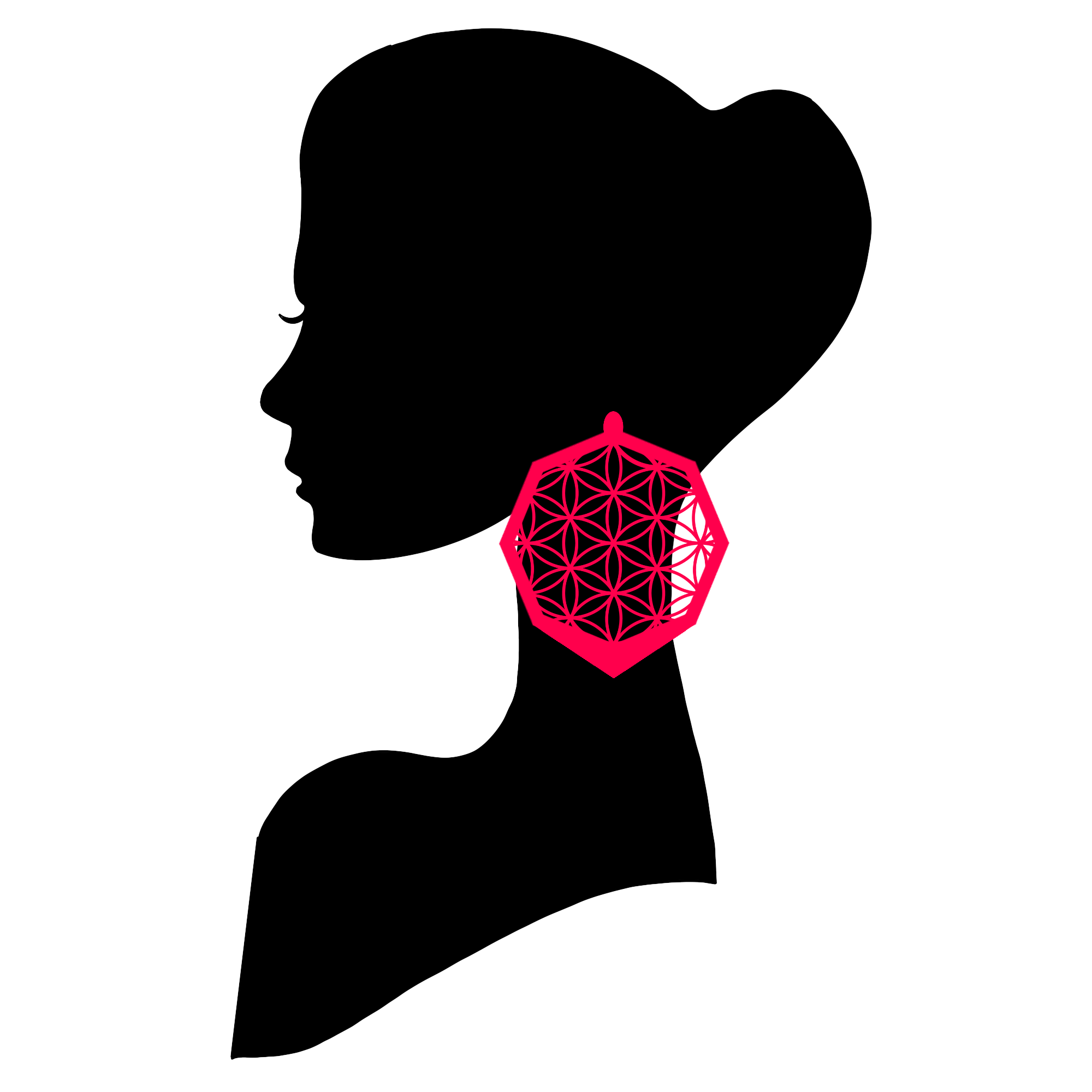I don’t know if you’re like me, but I’m definitely more productive when I’m writing or working in a coffee shop than anywhere else!
Since I adopted the nomadic lifestyle, of course, I have the privilege of being able to choose where I put my laptop to accomplish my tasks, but I have to adapt to all kinds of environments.
Chai latte in hand, I mingle with the surrounding fauna, I get inspired and I easily enter a creative bubble. I really asked myself why am I more productive, surrounded by people. I did some research to analyze this phenomenon and I learned a lot of things. I share everything with you!
1. Changing your environment stimulates your creativity
The concept of contextual stimulation is based on the idea that our physical environment directly influences the way we think, solve problems or work.
The new stimuli offered by an unfamiliar atmosphere, such as a coffee shop, can trigger more flexible and creative thinking. A variety of background noises, the sight of other people working, and even the smell of coffee can play a role in improving our concentration and our ability to approach tasks in innovative ways.
A change of scenery can not only break the monotony, often associated with a static office, but also energize imagination and focus. Just as it allows you to break the routine.
In other words, contextual stimulation activates different parts of the brain, leading to improved cognitive performance in a space where we feel both stimulated and relaxed. This new environment stimulates creativity and concentration by offering a refreshing atmosphere. This exposure to different sounds, sights, and social interactions helps inject freshness into the mental process. thereby increasing productivity while reducing the feeling of stagnation.
This would perhaps also explain why my brain, which is overflowing with ideas, quickly becomes bored with a daily routine.
Source : On the role of contextual factors in cognitive neuroscience experiments: a mechanistic approach
2. Ambient noise improves your concentration
Have you ever heard of white noise? In recent years, I have heard a lot about this type of sound. I feel like all my friends have discovered the Holy Grail of staying focused.
White noise has gained popularity due to its beneficial effects on concentration, sleep and stress reduction. This noise is produced by the superposition of all audible sound frequencies, played simultaneously at equal intensity. The result is a continuous, uniform sound, often compared to that of a fan or a crackling radio.
White noise is widely used to promote focus or mask surrounding noise by creating a calming backdrop of sound.
When working or relaxing, it tends to reduce distractions by drowning out sudden, irregular sounds, such as conversations or background commotion in public spaces.
The calming effect of white noise comes from its ability to maintain a constant level of auditory stimulation, which can help avoid interruptions in concentration and stabilize attention on a specific task.
I recently discovered the “noise reduction” mode on my new AirPods, which plays a constant, barely perceptible sound in my ears, which masks the conversations of the people around me at the cafe.
White noise could help you:
- Improve your sleep: White noise can help block disruptive noises, promoting deeper, more restful sleep.
- Increase your concentration: by establishing a sort of uniform “sound layer”, white noise can minimize distractions and improve concentration in noisy environments.
- Manage your stress more effectively: White noise can have a calming effect and reduce stress by creating a predictable and consistent sound environment.
Additionally, the ambient murmurs of a coffee shop, such as background discussions and surrounding activity, have been shown to enhance creativity and productivity. This slight hum helps me concentrate better than in total silence, by creating a “golden mean” of concentration without being intrusive. So white noise for me is a big Yes!
Coffitivity effect
It seems that creativity gets a little boost when you are surrounded by ambient noise of around 70 dB, rather than the usual 50 dB. This noise level corresponds exactly to that of a coffee shop with moderate activity. Starbucks and other neighborhood bistros must be happy about this. Can’t you leave the house? The Coffitivity website loops café ambiance directly into your headset while you work.
Try it, let me know what you think!
Source : Is Noise Always Bad? Exploring the Effects of Ambient Noise on Creative Cognition
3. Fewer distractions = more productivity
Conversely, daily distractions appear omnipresent. I think this is the point that will speak to you the most! This is the one I have the most difficulty managing. A dog who makes eyes at me, a loved one who talks to me, household chores to do, an alert on my phone. We experience so many distractions in a day that our brain always remains on alert. However, it is increasingly difficult to stay in a state of deep concentration for a long period of time.
Several studies have examined the impact of cell phone notifications on concentration and cognitive performance. The results show that even passive notifications, without direct interaction, can significantly disrupt attention and efficiency in the tasks at hand. This is because the brain automatically reacts to notifications, which diverts some cognitive resources from the work at hand, leading to slower reaction times and reduced concentration.
Turn off your notifications
When the brain is interrupted by a notification, it takes an average of 23 minutes and 15 seconds to fully refocus on the initial task. This recovery time is due to the process of cognitive reorientation, where the brain must detach itself from the distraction to return to the main activity.
Additionally, the tendency to frequently check your phone can be detrimental to mental well-being. We may feel guilty or frustrated after being distracted by notifications. Neuroscience research shows that these constant interruptions increase cognitive load. Because the brain must constantly switch from one task to another, which hampers the ability to concentrate deeply and solve complex problems.
When the brain is interrupted by a notification, it takes an average of 23 minutes and 15 seconds to fully refocus on the original task
Direct impact on your productivity
Research by productivity expert Gloria Mark shows that even short interruptions, like a simple notification, can affect overall performance by causing a longer loss of concentration than the interruption itself. This accumulated loss of time has a direct impact on productivity.
Thus, proactively managing notifications and minimizing distractions remains essential to maintaining sustained attention and optimal productivity.
To reduce these effects, it is recommended to turn off non-essential notifications and schedule specific times to check your phone. This method helps improve concentration and preserve cognitive performance.
If you find that I’m more difficult to reach, it’s probably because for some time now, I’ve been using the focus mode on my phone more and more. I only take my messages at the end of the day.
4. Working in a cafe: A social environment without the obligation to interact
In a café, being surrounded by anonymous people, without social pressure and without obligation to interact, greatly facilitates the creation of a productive bubble.
Working in a coffee shop can also provide a sense of community. Being surrounded by people focused on their tasks can be motivating, because it stimulates a social dynamic where we tend to want to be as productive as others around us.
In fact, working from a coffee shop can help you feel less isolated compared to working remotely from home, without imposing interruptions. Cafes offer the benefit of a quiet, non-intrusive community. Working around other individuals (even strangers) creates a feeling of responsibility which helps combat procrastination. That means a lot to me. My high-performance trait manifests itself in front of others.
I’m talking about cafes, but coworking spaces are growing more and more. These are also places that should not be overlooked if you want to succeed as a Digital Nomad.
What if attention spread like a virus?
They say that a moderate level of ambient noise can help you concentrate. Mental effort seems contagious: when we are surrounded by people who work, it motivates us to do the same. It’s a bit like sport.
For example, when I go to a yoga studio, I could just as easily perform my asanas at home. However, being surrounded by other yogis pushes me to concentrate more and be more disciplined in my practice. In the same way, working in a public space, surrounded by productive people, has a positive impact on my motivation and my efficiency.
5. Structure and temporal limits
Going to work in a café creates a clearer separation between your work and relaxation times, allowing you to set clear boundaries. At home, this boundary can be blurred, making it harder to concentrate.
Finally, cafes have fixed opening and closing times, which helps you manage your time better, creating a sort of natural limit for the tasks to be accomplished, which is often difficult to establish at home.
In short, you say to yourself: I’m in a café, I have two hours to spare, I might as well focus and boost my productivity!
Boost your productivity by changing your environment
If, like me, you have trouble staying focused, perhaps a change of environment will do you the most good. Working in a cafe, surrounded by people, can boost your productivity in surprising ways. This not only allows you to break the routine, but also enjoy the benefits of moderate ambient noise, visual stimulation, and even the feeling of belonging to a community. Without neglecting the advantage of tasting your favorite matcha.
So, the next time you have trouble moving forward on a project or feel stuck in a routine, grab your computer, go to your favorite café, and let yourself be carried away by this inspiring atmosphere.
You’ll see, concentration can be contagious, and you’ll surely come out more motivated than ever! Tell me what you think of this article in the comments.





0 Comments